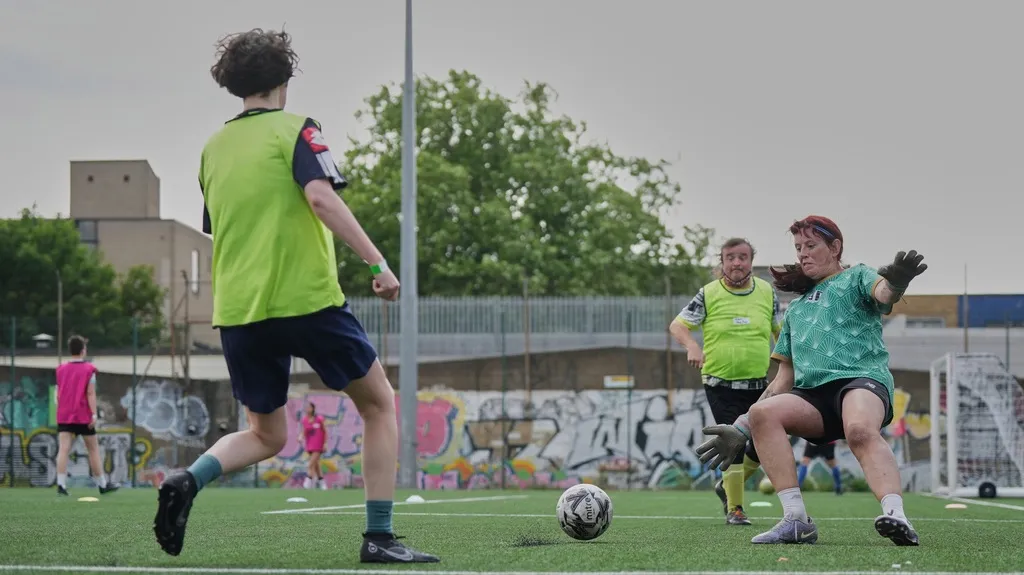May 4, 2011
Homeless LGBT Youth Advocates Complain About Being Left Behind
Michael K. Lavers READ TIME: 3 MIN.
Have LGBT organizations done enough for homeless youth?
Carl Siciliano, executive director of the Ali Forney Center; New York City Councilmember Lew Fidler; Nico Sifra Quintana of the Center for American Progress; journalist Kai Wright and University of Pennsylvania law professor Tobias Barrington Wolff discussed this question at the LGBT Community Center in lower Manhattan on Tuesday, May 3.
Moderator Cathy Renna stressed the confab was not about pitting "people and issues against each other" as its title--Sleeping in the streets or walking down the aisle? Prioritizing LGBT youth in our struggle for equality--may suggest. A marriage equality forum coincidentally took place at the same time on Manhattan's Lower East Side, but Marriage Equality New York and the Empire State Pride Agenda both sent representatives to the Center.
"I am proud to be part of the gay rights movement," said Siciliano, noting the progress he has seen on marriage equality, the repeal of "don't ask, don't tell" and other LGBT issues since New York City's gay and lesbian rights bill became law in 1986. "I'm not proud of what we've done for our young people. We can do better."
New York Gov. Andrew Cuomo is poised to introduce a bill that would allow same-sex couples to marry in the Empire State. A new coalition that includes MENY, the Pride Agenda, the Human Rights Campaign and Freedom to Marry formed last month to spur the measure's passage in Albany. Siciliano scolded LGBT organizations over their response to the passage of a state budget that cut state funding for runaway and homeless youth by 50 percent.
"It says something about our community, about how much we do/don't value our youth," said Siciliano. "We have to acknowledge we are in an adult-centric movement."
Fidler, who chairs the New York City Council's Youth Services Committee, was far more blunt.
"A responsible adult doesn't leave a child sleeping on a subway grate at night," he said.
Wright acknowledged forum attendees who packed the Center's first floor auditorium, but he stressed that LGBT organizations should collaborate with racial and economic justice groups if they hope to effectively tackle this problem.
"The problem is a handful of people in the queer movement who try to build a more positive space are small, underfunded and not supported," said Wright. "There have to be more people at the table. As long as it's just an LGBT issue, it's never going to move."
Wolff stressed LGBT organizations "respond to the needs of people who are more visible to them" and are "more important to them." He noted marriage equality is about changing the law, while the end of "don't ask, don't tell" is about repealing a statute. "Homeless youth and homeless LGBT youth isn't like that," said Wolff. "This is an ongoing issue we're going to have to continue engaging with."
The US Department of Health and Human Services requires runaway and homeless youth service organizations equip themselves to serve LGBT youth. These providers can also apply for HHS funding that is specifically earmarked for LGBT youth.
The United States Interagency Council on Homelessness profiled both Ali Forney and the Ruth Ellis Center in Detroit in its February newsletter, while the Obama administration's strategy to eliminate homelessness in the country by 2020 includes LGBT youth. Quintana, who was a homeless teenager in Oregon, blasted what he described as a lack of political will in both the White House and on Capitol Hill to effectively address homelessness among LGBT youth.
"It's disgusting and it's completely unnecessary," said Quintana.
Cindy Rizzo suggested to the panelists that marriage equality activists have a responsibility to hold Cuomo and other elected officials accountable. "You cannot raise $20,000 for Gov. Cuomo at a house party without raising this issue," she said.
Fidler appeared to agree.
"The government has... an obligation to multitask," he said.
Based in Washington, D.C., Michael K. Lavers has appeared in the New York Times, BBC, WNYC, Huffington Post, Village Voice, Advocate and other mainstream and LGBT media outlets. He is an unapologetic political junkie who thoroughly enjoys living inside the Beltway.




